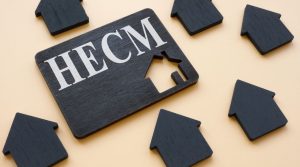
What Are the 3 Types of Reverse Mortgages?
Reverse mortgages offer seniors a valuable opportunity to access their home equity without the burden of monthly mortgage payments. However, not all reverse mortgages are created equal. There are three primary types of reverse mortgages, each with its own features and eligibility requirements. In this guide, we’ll explore the three types of reverse mortgages, helping you understand the differences and determine which option may be right for you.
Verify my mortgage eligibility (Mar 4th, 2026)1. Home Equity Conversion Mortgage (HECM):

The Home Equity Conversion Mortgage (HECM) is the most common type of reverse mortgage and is insured by the Federal Housing Administration (FHA). HECMs offer several key benefits, including:
- Flexibility: HECMs can be used for a variety of purposes, including paying off existing mortgages, covering healthcare expenses, or supplementing retirement income.
- Loan Limits: HECMs have maximum loan limits set by the FHA, which vary depending on factors such as your age, the value of your home, and current interest rates.
- Non-Recourse Protection: With a HECM, you or your heirs will never owe more than the value of the home when the loan is repaid, even if the loan balance exceeds the home’s value.
Verify my reverse mortgage eligibility!
2. Proprietary Reverse Mortgages:

Proprietary reverse mortgages are privately insured loans offered by private lenders. Unlike HECMs, which are subject to FHA guidelines, proprietary reverse mortgages are not federally insured and may have different eligibility requirements and loan terms. Some key features of proprietary reverse mortgages include:
- Higher Loan Limits: Proprietary reverse mortgages often have higher maximum loan limits than HECMs, allowing homeowners with higher home values to access more of their equity.
- Jumbo Reverse Mortgages: Some proprietary reverse mortgages, known as jumbo reverse mortgages, are designed for homes with higher values that exceed the loan limits of traditional HECMs.
Verify my reverse mortgage eligibility!
Single-Purpose Reverse Mortgages:

Single-purpose reverse mortgages are offered by state and local government agencies and nonprofit organizations. These loans are typically designed for specific purposes, such as home repairs, property taxes, or utility bills. Some key features of single-purpose reverse mortgages include:
Verify my mortgage eligibility (Mar 4th, 2026)- Limited Use of Funds: Single-purpose reverse mortgages can only be used for the specific purpose outlined by the lender, making them less flexible than HECMs or proprietary reverse mortgages.
- Income and Asset Requirements: Single-purpose reverse mortgages may have stricter eligibility requirements related to income and assets compared to other types of reverse mortgages.
Verify my reverse mortgage eligibility!
Choosing the Right Type of Reverse Mortgage:
When deciding which type of reverse mortgage is right for you, it’s essential to consider your individual financial situation, goals, and needs. Factors to consider include your age, home value, existing mortgage balance, and desired use of funds. Working with a trusted reverse mortgage lender like Opulence Home Equity can help you navigate your options and make an informed decision that aligns with your long-term financial objectives.

Understanding the three types of reverse mortgages - HECMs, proprietary reverse mortgages, and single-purpose reverse mortgages - provides valuable insight into the options available to homeowners seeking to tap into their home equity. By evaluating the features, benefits, and eligibility requirements of each type of reverse mortgage, you can make a confident decision that supports your financial goals and enhances your retirement planning strategy. Contact Opulence Home Equity today to learn more about how we can help you explore your options and unlock the value of your home.
Show me today's rates (Mar 4th, 2026)